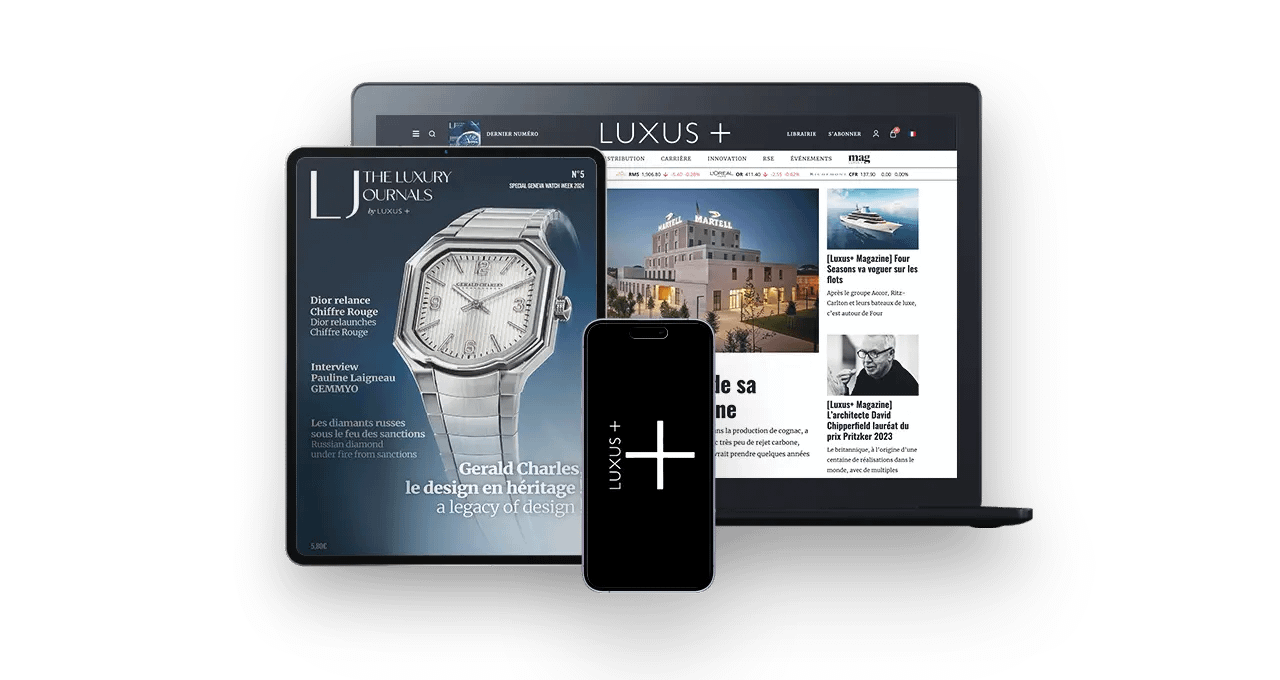Interview with Frédéric Montagnon, co-founder and CEO of Arianee, which develops a technological infrastructure for brands, enabling them to create digital passports for their physical products and engagement tokens. In other words, traceability and customer engagement tools that are of growing interest to the major luxury brands. Mugler is the latest to opt for this technology.
For Frédéric Montagnon, Arianee is his seventh entrepreneurial project. Trained as an engineer and an investor in start-ups from the very beginning, Frédéric Montagnon began his entrepreneurial career 23 years ago. His encounter with the disintermediated technology that is blockchain dates back to 2011. He was living in New York at the time.
LUXUS PLUS: How did you get involved with blockchain and NFT?
Frédéric Montagnon: I first became interested in Bitcoin. Although a neophyte in finance at the time, I was struck by the way this community had set up decentralized governance and sought to align the interests of users with those who design and evolve a system. It seemed obvious to me that the problems associated with data centralization on platforms (particularly GAFAM) could be solved by adopting principles and architectures inspired by Bitcoin. For NFTs, it was in 2016 with the first Rare Pepe. Coming from online advertising, I immediately thought of DRMs (digital rights management, editor’s note), electronic signatures and papers that could be used to authenticate objects. At the time, bankers were still asking me to sign pdfs, questioning the very value of these documents. Beyond collectibles, the use of NFTs to represent personal data puts users in control of their data, rather than collecting it in databases which, sooner or later, are exploited at users’ expense.
L+: How do you manage to have an impact on the luxury sector?
FM: Brands are dependent on major platforms for their customer relationships. They have no power over the way these platforms operate, and their hegemonic position allows them to unilaterally decide on content formats, the type of services and prices for the entire market.
L+: What’s your response to those who say that blockchain and NFT technologies are finished?
FM: Arianee has already enabled brands to create over 1.5 million digital passports in the form of NFTs. The bubble of NFT collections (PFPs) burst over 18 months ago, but if you look at the use of our protocol by brands, the progression is exponential.
We’ve often seen and read a lot of confusion between blockchain, web3, NFTs, the metaverse and AI. In reality, these technologies and concepts are all about infrastructure. Just because the general public and the mainstream media have lost interest in these subjects doesn’t mean the technologies aren’t relevant and aren’t being adopted. All technology responds to a cycle. In fact, the current situation is even healthier: now that the hype has died down, we can talk about the true value of blockchain and NFT. A year ago, we would have had customers who were mainly interested in making money without having to produce physical goods. But the heart of Arianee’s story is customer relations.
In a traditional web2 context, the company or brand knows, at best, to whom the product has been sold, but even so… this isn’t always true, especially with platforms like Amazon. Nowadays, products are not necessarily bought by the owner at a given moment, they are offered, resold, passed on between generations… especially in luxury goods. As a result, brands often don’t know the true owner of the product at any given moment.
L+: As a forward-thinker, you have conceived Arianee as an open innovation program that actively participates in the infusion and dissemination of blockchain culture…
FM: When it comes to sovereignty and independence, you can’t claim to help brands on the one hand, and create a black box on the other. The protocol enabling the technical creation of NFTs must remain a common asset that brands and their customers can use freely.
At Arianee, all documentation is online, including our 2016 White Paper: everything is transparent, nothing is hidden.
That’s why we created an association under the law of 1901, to which some fifty brands and partners now belong. They play an active part in the association’s major orientations at general meetings. This openness remains the best way to build trust and ensure that brands, and not just crypto-blockchain players, are on board.
L+: What do you see as the real revolution underpinning blockchain and NFTs? What are the most convincing use cases?
FM: Control over personal data, interoperability and decentralized governance are the real breakthroughs.
In the case of brands, we believe that it’s in the context of customer relations that these technologies bring the most value, as they open up a vast field of possibilities, while enabling us to gain digital sovereignty.
NFTs make it possible to provide customers with proof of ownership of a product or status. From this proof of ownership, it’s easy to attach a service book, manage warranties, build a loyalty program, create a communication channel not intermediated by a platform, and facilitate the circularity of products by providing information on their origin. In addition, the data represented by proof of ownership enables marketing targeting that was previously impossible.
The interoperability of this new form of data also makes it possible to unite an ecosystem of partners around the brand to offer localized services, without having to manage the complexity of linking different information systems: second-hand platforms, insurance, etc.
L+: And what about wines and spirits?
Read also > TOD’S JOINS THE AURA BLOCKCHAIN CONSORTIUM
Featured Photo: © Arianee



































